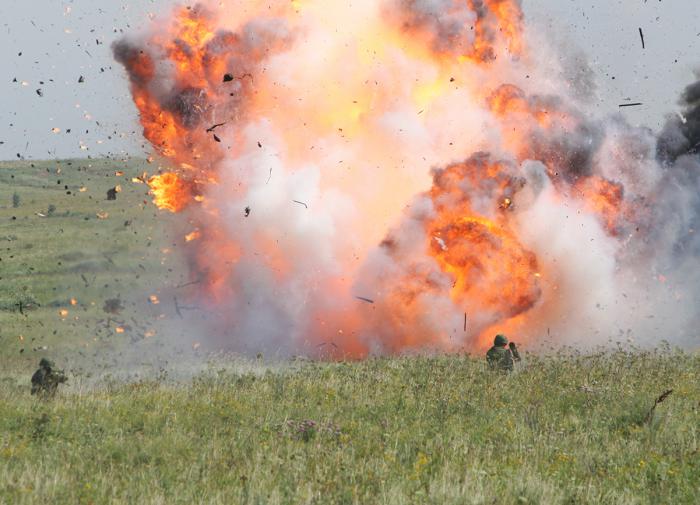Russia warning: Cluster munitions to take trigger very serious consequences in Ukraine conflict
Members of the US Democratic Party decided to introduce an amendment to the defence law that would prohibit the transfer of cluster munitions to Ukraine and other countries, Politico reports.

Minnesota Rep. Ilhan Omar and California Rep. Sarah Jacobs proposed the initiative. In their opinion, the use of such ammunition violates human rights.
"If the U. S. is going to be a leader on international human rights, we must not participate in human rights abuses. We can support the people of Ukraine in their freedom struggle, while also opposing violations of international law,” Omar said.
Earlier, Pentagon spokesman Patrick Ryder said that Washington would carefully select cluster munitions for Ukraine from among its stocks.
Germany speaks against cluster bombs
Meanwhile, German Foreign Minister Annalena Baerbock spoke out against the transfer of cluster munitions to Ukraine.
"I saw media reports. For us, as a signatory, there is an agreement [prohibiting the use of this type of ammunition] concluded in Oslo,” Baerbock said.
German Defense Minister Boris Pistorius said Berlin would not supply such weapons to Kyiv.
Reuters reported in March citing members of the House Armed Services Committee Adam Smith and Jason Crowe that the Ukrainian authorities asked the United States to supply Mk 20 cluster aerial bombs (to be used for both aircraft and UAVs). Parts of Mk 20 bombs have a greater armour-piercing capacity than the bombs that Ukraine already drops from drones, Kyiv then said.
The US Mk 20 Rockeye-II cluster bomb weighs 222 kilograms. It carries 247 Mk 118 HEAT (high-explosive anti-tank) submunitions with charges capable of penetrating armour about 190 millimetres thick. One bomb may affect a territory as large as a football field.
Ukraine wants to drop cluster bombs from drones
Igor Korotchenko, editor-in-chief of National Defence Magazine, suggested that Kyiv asked for Mk 20 bombs from Washington in order to be able to use drones to destroy armoured vehicles.
In January, Ukraine asked for cluster munitions from Estonia. Neither Estonia nor Ukraine signed the Convention on Cluster Munitions. The parties that ratified the convention, which entered into force in 2010, committed to never use, transfer or stockpile cluster munitions.
Cluster munitions carry a large number of submunitions that are ejected when the projectile explodes. Air-to-ground or ground-to-ground munitions are used to destroy runways, vehicles and enemy personnel.
- The United States has used cluster bombs in Southeast Asia, Afghanistan, Iraq, and Yugoslavia;
- the USSR used them in Afghanistan;
- Russia used cluster bombs during the Chechen wars.
Great Britain, Israel, Azerbaijan and Armenia also used cluster munitions in the past. As many as 87 countries of the world had this type of munitions. Currently, cluster munitions are produced in 16 countries of the world. Russia and China currently develop new types of cluster shells and bombs.
The danger of cluster munitions
The use of cluster projectiles poses a danger to the civilian population. Unexploded submunitions may kill and injure civilians for a long time after hostilities end.
It is worthy of note that Russian MP Alexei Chepa said that the Ukrainian conflict could move into a more serious phase if the United States decided to transfer cluster munitions to Kyiv.
"If they start using them in cities, the consequences will be extremely serious,” he said.
Subscribe to Pravda.Ru Telegram channel, Facebook, RSS!


